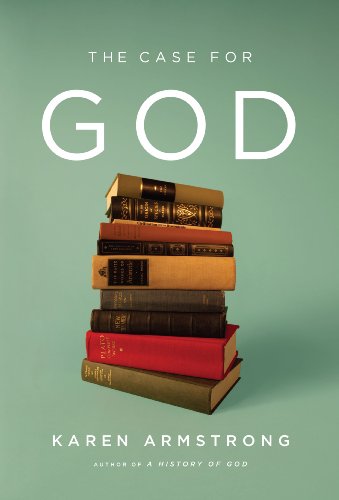
The Case for God
کتاب های مرتبط
- اطلاعات
- نقد و بررسی
- دیدگاه کاربران
نقد و بررسی

Starred review from August 1, 2009
Fascinating journey through Western civilization's ongoing attempts to understand and explain the concept of God.
Celebrated religion scholar Armstrong (The Bible: A Biography, 2007, etc.) creates more than a history of religion; she effectively demonstrates how the West (broadly speaking) has grappled with the existence of deity and captured the concept in words, art and ideas. Beginning in the majestic caves of Lascaux, Armstrong explores how religion became a meaningful part of prehistoric societies, and the ways in which these societies passed down their practices and ideas in the earliest forms of art. The author then moves on to early monotheism and its rivals, offering a brilliant examination of ancient Greek views on religion and reason, which laid the groundwork for so much of Western thought. Looking at the early Christians and Diaspora-era Jews in tandem, Armstrong delves into Talmudic study and midrash, as well as Christian adaptations of theological concepts. Throughout the book, the author argues against religion as an abstraction, noting that it most truly exists in practice."Faith…was a matter of practical insight and active commitment," she writes."It had little to do with abstract belief or theological conjecture." Nevertheless, scholars have always attempted to define and"prove" God, and Armstrong admirably outlines the best of them through the centuries, including Origen, Anselm, Pascal and Tillich. Armstrong claims that the"warfare" between science and religion is a myth perpetuated by those with axes to grind. Likewise, the modern atheist movement,"death of God" theology and even fundamentalism arise from extremists who see religion as correct doctrine, not correct praxis. Though mostly focused on the West, Armstrong maintains a global perspective, masterfully weaving in her solid understanding of the world's panoply of faiths.
Accessible, intriguing study of how we see God.
(COPYRIGHT (2009) KIRKUS REVIEWS/NIELSEN BUSINESS MEDIA, INC. ALL RIGHTS RESERVED.)

July 14, 2009
Armstrong offers a tour de force study of religiosity that expands on themes in her previous titles A History of God and The Great Transformation. Armstrong contrasts the "unknown God" of 30,000 B.C.E-1500 C.E. with the modern God (1500 C.E.-present) and burgeoning European atheism. Today, religion is supposed to provide answers, but in earlier times, faith functioned like art and was a source of joy and serenity in the face of mystery and challenges. Verdict Highly recommended for readers willing to grapple with difficult but clearly articulated concepts and challenges to the "received" ways of perceiving religion. A classic book addressing some of the same issues is Wilfred Cantwell Smith's The Meaning and End of Religion. [See Prepub Alert, LJ 5/1/09.]-Carolyn M. Craft, Longwood Univ., Farmville, VA
Copyright 2009 Library Journal, LLC Used with permission.

Starred review from July 1, 2009
The new book by the premier contemporary historian of religion is a history of God, from the implications of the cave paintings of Lascaux, through pagan and Eastern religions (with and without gods), through the pre-modern understandings of the great monotheisms, to the God and the reactive atheism of modernity. Armstrong stresses that the most common response to questions about God has been silence. This is the apophatic perspective, which holds that God is beyond words, a reality that eludes measurement, specification, even conception. This reality was apprehended by means of rituals such as those practiced by the mystery cult at Eleusis, 20 miles from ancient Athens, and is expressed by the famous I am what I am in Moses encounter with the burning bush, which, Armstrong explains, was equivalent to Never mind who I ambecause the nature of God was beyond discussion. Indeed, until the modern period, she reveals, belief in the religious sense didnt mean assent to a creed or doctrine but trust in, commitment to, and active engagement with truth that cannot be spoken. The definite God of modernityespecially the hyperdefined God of fundamentalismand its complement, atheism, are nineteenth- and twentieth-century developments reflecting the materialist rationality of science and technology. Perhaps post-modernisms corrosive effect on all certainties can help revitalize religion in the twenty-first century. Presenting difficult ideas with utter lucidity, this registers at once as a classic of religious and world history.(Reprinted with permission of Booklist, copyright 2009, American Library Association.)

























دیدگاه کاربران